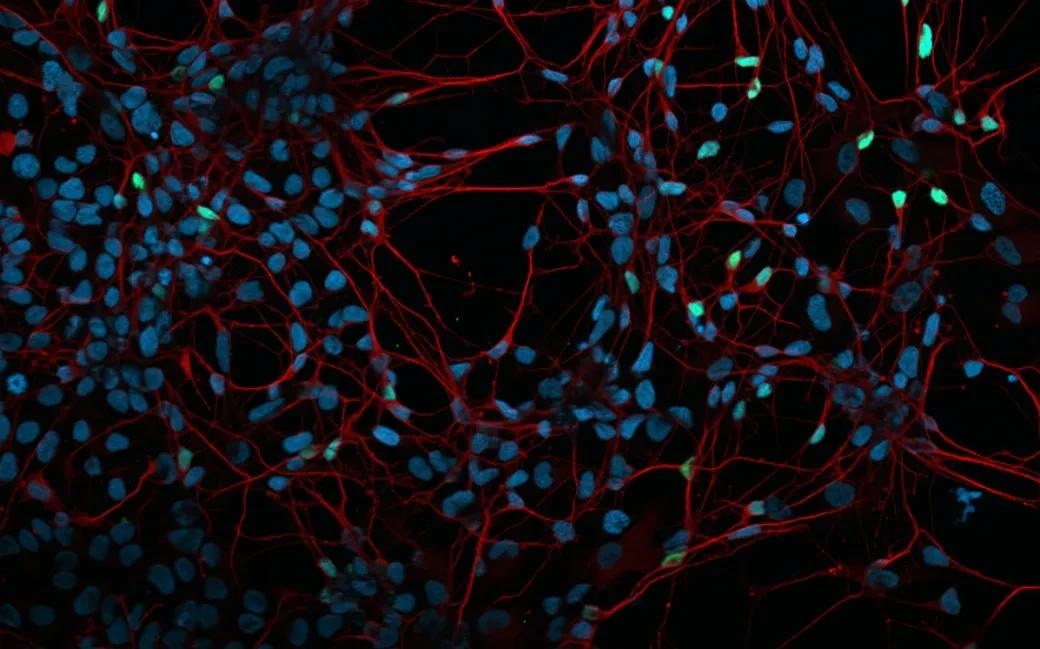Scientists have learned how to manufacture induced pluripotent stem cells (iPSC) from regular cells through genetic reprogramming during the last ten years. Since they can be differentiated from nearly any cell type in the body and can be created from any individual, these cells are routinely employed in studies on diseases.
 Fluorescent microscopy image of cultured neurons derived from iPSC lines. Image Credit: Group Kilpinen
Fluorescent microscopy image of cultured neurons derived from iPSC lines. Image Credit: Group Kilpinen
The differentiation process, on the other hand, is prone to significant technical variance for mostly unknown causes.
Helena Kilpinen, a HiLIFE Tenure Track Professor at the University of Helsinki, and her colleagues explored the biological mechanisms underlying neurodevelopmental and other brain-related diseases using stem cells.
Their new study, which was just published in the journal Cell Genomics, intended to shed light on the causes behind the varying differentiation outcomes of iPSCs.
This combined study from the University of Helsinki and University College London shows that cultured stem cells can acquire new genetic alterations that can have a major influence on the cells’ differentiation capabilities.
The researchers investigated the effect of such mutations by monitoring the differentiation of over 200 iPSC lines derived from individuals in good health to dopaminergic neurons and compared the differentiation outcome to the mutation profile. They followed the developmental pathways of individual neurons using a method that studies one cell at a time.
The researchers discovered that iPSC lines with harmful mutations in a gene called BCOR generated fewer neurons, proliferated faster in culture, and had significant abnormalities in gene expression. This gene plays an important role in embryonic development.
In line with our original hypothesis, the results showed that mutations acquired during the generation and subsequent culture of iPSC lines can have a major effect on the differentiation process, completely independently from any disease-specific processes.”
Helena Kilpinen, HiLIFE Tenure Track Professor, University of Helsinki
The researchers also revealed that the mutational mechanisms that impair neuron production in the laboratory are identical to those that occur during brain formation.
Surprisingly, somatic mutations found in iPSCs lines impacted the same genes mutated during early human brain development. If those mutations can be mirrored, we will have a very detailed picture of the genetic factors that cause neurodevelopmental disease.”
Pau Puigdevall, Study First Author and Postdoctoral Researcher, University of Helsinki
The study’s authors came to the conclusion that employing iPSC models to study disease calls for caution when interpreting differentiation-related phenotypes.
Dr Kilpinen added, “Based on this data, more optimization in the laboratory is needed to generate good disease models and eventually use them at scale with patients, specifically in developmental and neuropsychiatric disorders.”
Source:
Journal reference:
Puigdevall, P., et al. (2023). Somatic mutations alter the differentiation outcomes of iPSC-derived neurons. Cell Genomics. doi.org/10.1016/j.xgen.2023.100280